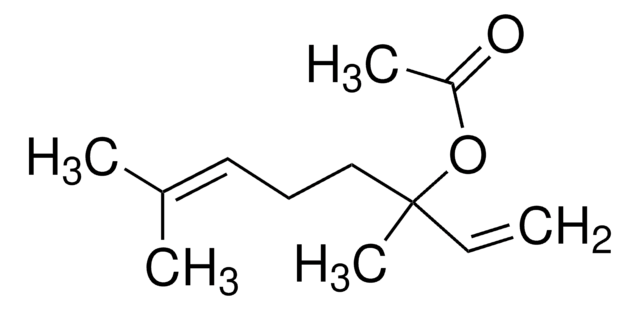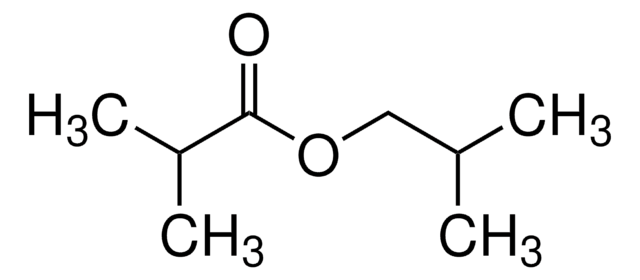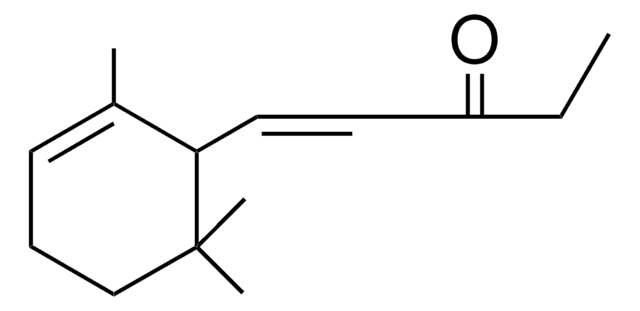W263613
Linalyl acetate
natural, ≥96%, FG
Synonym(s):
3,7-Dimethyl-1,6-octadien-3-yl acetate, Bergamol
About This Item
Recommended Products
biological source
botanical
Quality Level
grade
FG
Halal
Kosher
natural
reg. compliance
EU Regulation 1334/2008 & 872/2012
FDA 21 CFR 117
vapor density
6.8 (vs air)
vapor pressure
0.1 mmHg ( 20 °C)
assay
≥96%
refractive index
n20/D 1.453 (lit.)
bp
220 °C (lit.)
density
0.901 g/mL at 25 °C (lit.)
application(s)
flavors and fragrances
documentation
see Safety & Documentation for available documents
food allergen
no known allergens
organoleptic
green; woody; floral; sweet
SMILES string
C\C(C)=C\CCC(C)(OC(C)=O)C=C
InChI
1S/C12H20O2/c1-6-12(5,14-11(4)13)9-7-8-10(2)3/h6,8H,1,7,9H2,2-5H3
InChI key
UWKAYLJWKGQEPM-UHFFFAOYSA-N
Looking for similar products? Visit Product Comparison Guide
Related Categories
General description
Application
- Evaluation and estimation of diuretic activity of the linalyl acetate in the rats.: Focuses on the pharmacological effects of linalyl acetate, testing its diuretic activity in rats, which could lead to new therapeutic applications in medicine (Rafique et al., 2024).
- Characterization of bergamot essential oil: chemical, microbiological and colloidal aspects.: Investigates the components of bergamot essential oil, including linalyl acetate, assessing its chemical properties and potential microbiological uses, supporting its diverse applications in cosmetics and therapeutics (Cordeiro et al., 2024).
signalword
Warning
hcodes
Hazard Classifications
Eye Irrit. 2 - Skin Irrit. 2 - Skin Sens. 1B
Storage Class
10 - Combustible liquids
wgk_germany
WGK 1
flash_point_f
201.2 °F - closed cup
flash_point_c
94 °C - closed cup
ppe
Faceshields, Gloves, Goggles, type ABEK (EN14387) respirator filter
Choose from one of the most recent versions:
Already Own This Product?
Find documentation for the products that you have recently purchased in the Document Library.
Customers Also Viewed
Our team of scientists has experience in all areas of research including Life Science, Material Science, Chemical Synthesis, Chromatography, Analytical and many others.
Contact Technical Service









